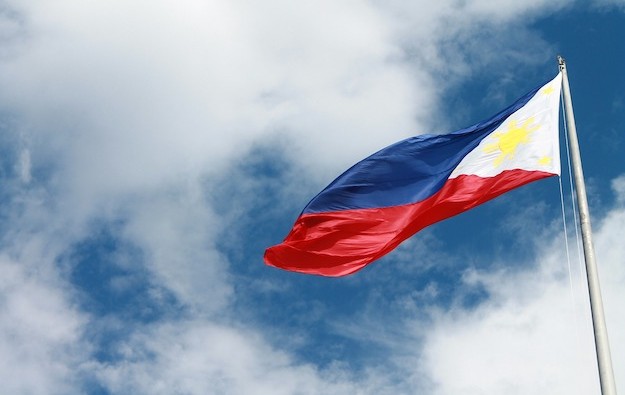Philippines has tools to curb money laundering: watchdog
May 06, 2021 Newsdesk Latest News, Philippines, Top of the deck

The Philippines has “already passed all the requisite” laws in order to “strengthen the country’s anti-money laundering and combatting the financing of terrorism legal framework,” said a government watchdog in response to an enquiry from GGRAsia.
The measures included the Anti-Terrorism Act of 2020 and a recent amendment to the Anti-Money Laundering Act of 2001, stated the Anti-Money Laundering Council, a body known as the AMLC.
The Council said in commentary to GGRAsia that the country now needed to “demonstrate that our anti-money laundering and combatting-the-financing-of-terrorism legal and institutional framework is producing the expected results over a sustained period.”
The watchdog added: “Thus, at this point, all branches of government are contributing toward demonstrating tangible and positive progress, according to the roadmap set.”
The entity was answering questions from GGRAsia regarding progress on bolstering the financial integrity of the Philippine casino sector.
GGRAsia’s enquiry followed a recent report issued by the International Monetary Fund, which said the Philippines would need to make further reforms to enhance its anti-money laundering and combatting the financing of terrorism measures in relation to the country’s casino industry.
In a highly-publicised incident in 2016, some of the US$81 million in money stolen from the Bank of Bangladesh via an online heist, passed through gaming operations at several Philippine casinos before mostly disappearing.
One of the venues through which some of the money was allegedly funnelled – according to statements by investigators – was Solaire Resort and Casino in Manila, promoted by a unit of Bloomberry Resorts Corp. Litigation in relation to that incident is ongoing.
Pagcor’s role in fighting money laundering
The effort to fight money laundering in the Philippines also includes the Philippine Amusement and Gaming Corp (Pagcor), the Anti-Money Laundering Council told GGRAsia. The former is an operator of public-sector casinos as well as the regulator and licensor of private-sector venues.
Pagcor’s most recent sectoral risk assessment of the Philippine casino sector was completed in late 2018 and approved by Pagcor’s board in January 2019, noted the Anti-Money Laundering Council in its commentary to GGRAsia. It aimed to determine the vulnerability of casinos to money laundering and terrorism financing.
The role of junkets in the Philippine casino industry was among the items scrutinised by the nation’s gaming regulator, due to the “high level of vulnerability to money laundering and terrorism financing” associated with such business, said the Anti-Money Laundering Council.
The Council said that Pagcor had – in assessing risk associated with casino junket business – looked at “policies and procedures on the conduct of customer acceptance; verification; monitoring of junket accounts and transactions; and record-keeping”.
Steps had also been taken by Pagcor to ensure junket personnel were included in “employee training” in relation to anti-money laundering topics, added the AMLC.
The Anti-Money Laundering Council noted: “Further, the current regulatory framework of Pagcor provides administrative penalties and sanctions, such as the suspension or revocation of licence against casinos found to be engaging in prohibited acts, including the violation of the conditions attached to the grant of a provisional/regular licence.”
Related articles
-
 RGB says ‘unaffected’ by...
RGB says ‘unaffected’ by...Jul 26, 2024
-
 Philippines gives 20k aliens in POGOs...
Philippines gives 20k aliens in POGOs...Jul 25, 2024
More news
-
 Donaco EBITDA up y-o-y to above US$4mln...
Donaco EBITDA up y-o-y to above US$4mln...Jul 26, 2024
-
 HK listed Palasino upgrades Czech...
HK listed Palasino upgrades Czech...Jul 26, 2024
Latest News
Jul 26, 2024
Border-casino operator Donaco International Ltd has achieved a 164.17-percent year-on-year increase in its latest quarterly group earnings before interest, taxation, depreciation and amortisation...Sign up to our FREE Newsletter
 (Click here for more)
(Click here for more)
Pick of the Day
”We’ve got more traction outside of Macau at the moment. But Macau’s going be a bigger focus for us”
David Punter
Regional representative at Konami Australia
Most Popular
 Sheraton brand to exit Londoner Macao, to be Londoner Grand July 25, 2024
Sheraton brand to exit Londoner Macao, to be Londoner Grand July 25, 2024  Macau regulator probes unlicensed gaming agents July 24, 2024
Macau regulator probes unlicensed gaming agents July 24, 2024  Philippines gives 20k aliens in POGOs 60 days to leave July 25, 2024
Philippines gives 20k aliens in POGOs 60 days to leave July 25, 2024  Philippines-listed DigiPlus says not affected by POGO ban July 24, 2024
Philippines-listed DigiPlus says not affected by POGO ban July 24, 2024  Sands China 2Q EBITDA down q-o-q amid low hold, renovation July 25, 2024
Sands China 2Q EBITDA down q-o-q amid low hold, renovation July 25, 2024






